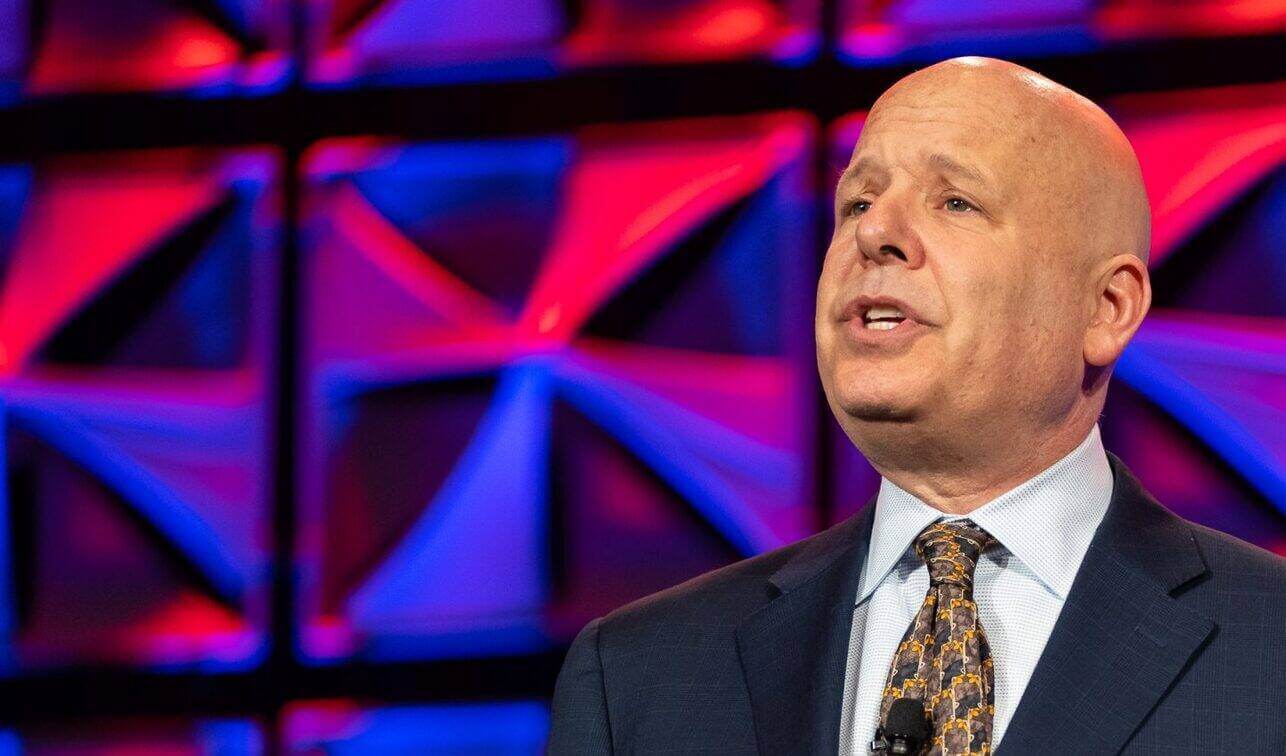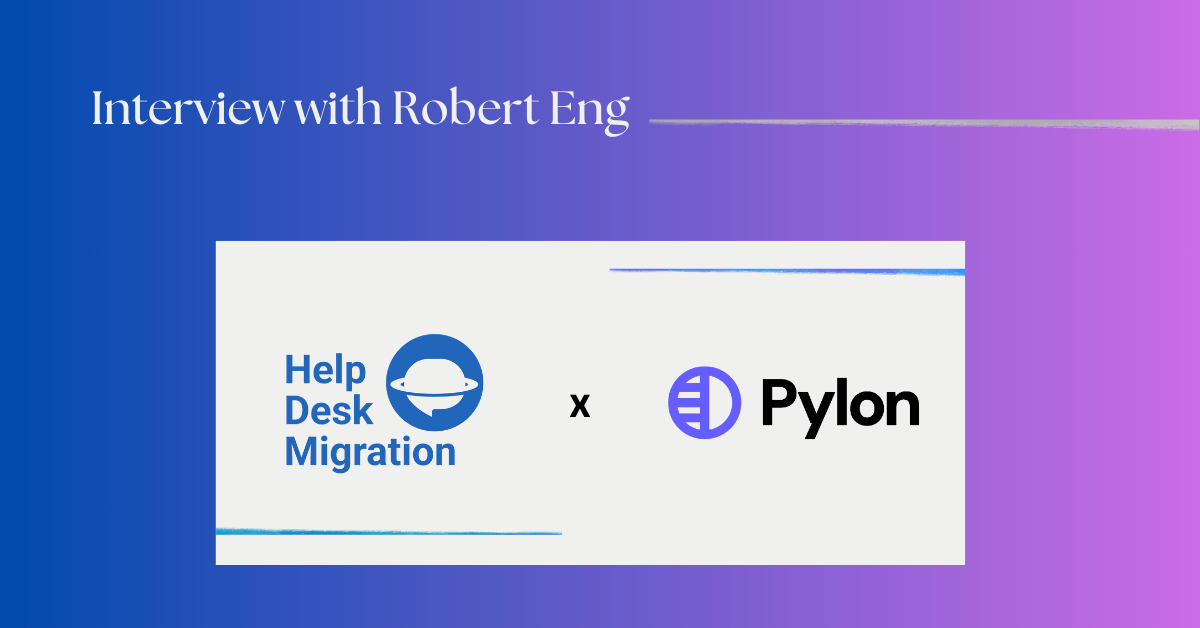Under the frame of our series of interviews with top experts in customer experience and support, we are excited to announce that this blogpost is dedicated to the Chief Amazement Officer of Shepard presentations, New York Times and Wall Street Journal bestselling writer, author of various customer-service related books, and creator of a customer service training program The Customer Focus Shep Hyken.
Having a lifetime achievement in the speaking profession, Shep is known for his high-energetic presentations. Moreover, he helps such well-known companies as American Airlines, AT&T, American Express, and many more to build loyal relationships with their customers and employees. As it is well-said in Shep Hyken’s X’s bio, he “helps companies deliver AMAZING customer service experience.”
There is no doubt that you would take a great amount of useful information from this interview with a customer service and experience professional, with whom we have recently had an amazing conversation. So, as Shep Hyken encouragingly said at the beginning of our talk, “let’s rock-and-roll!"
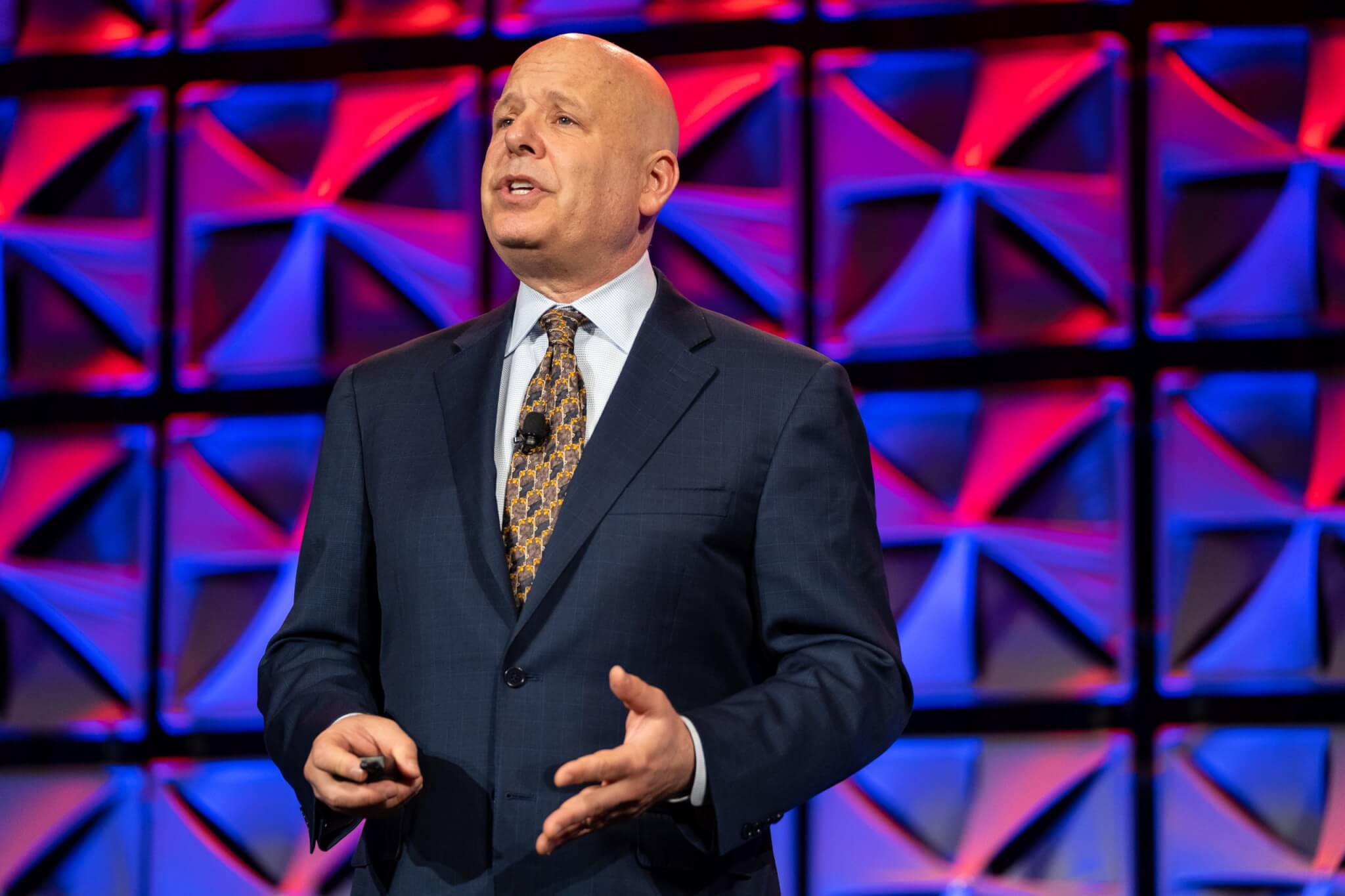
A how-to-build-loyal-relationships-with-your-customers guide
Q: Shep, you are the customer service and experience expert. Can you name your personal top-3 pieces of advice to a company that wants to build loyal relationships with its customers?
Well, top-3 ideas for a company to build loyal relationships with its customers, here we go:
Number one. A company has to decide that they want to be customer-focused. And that starts with leadership: they make the decision and then define what the company’s vision should look like.
I’ll use the Ritz-Carlton’s example here. Their first president and co-founder Horst Schulze said the following words when first coming to Ritz-Carlton’s: “We’re ladies and gentlemen serving ladies and gentlemen.” Those nine words became their overarching theme, and they have never changed it.
Number two. Leadership has to recognize that building loyal relationships with the company’s customers is not just an adjustment for the frontline. This is cultural, as customer service is not a department; it’s a philosophy.
Customer service is not a department; it’s a philosophy.
Number three. A company should train everybody. All workers need to understand what role they play in service. Obviously, the frontline people, the people in the support center, and salespeople are going to be trained differently. Moreover, everyone behind the scenes needs to understand how their job impacts the customer, and how their responsibilities impact the vision that their leadership team has about what the service and the experience should be.
Factors that make customer service amazing
Q: You have some really wonderful tweets, so I want to ask you the following question. Your X’s bio states that you “help companies to deliver AMAZING customer service experience.” What should an amazing customer service experience look like? What factors define whether a customer experience is amazing or not?
That is a great question, and here is the important point. Amazing is not about being over the top and blowing the customer away with the most incredible service. Amazing is when your customers say this about you and use the word “always” followed by something positive. For example, “they are always so knowledgeable, they are always so helpful, they always get back to me quickly.” That word “always” followed by something positive is letting you know (especially when it’s consistent and predictable) that you’re doing a great job. And your customers will say that you are amazing because of that. Even when there’s a problem, your customers will know they can always count on you to help them. This way, the word “always” is again followed by something positive.
Once in a while, something like a problem in customer service is going to happen. There might be something we can’t go above or beyond, but it will definitely be expected by our customers. However, if you are consistently and predictably day in and day out creating this amazing experience, it will just be a little bit above the average.
Amazing is not about being over the top and blowing the customer away with the most incredible service. Amazing is when your customers say this about you and use the word "always" followed by something positive.
Thoughts on modern technologies in customer service
Importance of a human touch
Q: I would like to ask you about one more tweet of yours. Let me quote: “The greatest technology in the world hasn’t replaced the ultimate relationship-building tool between a customer and a business - the human touch.” Can you elaborate on it a little bit?
Sure. So, many companies today are so obsessed with the amazing technology that has become available: artificial intelligence, chatbots, the digital experience, if you will. And the issues that I see some companies having are that they become so excited about this that they’ve lost touch with the importance of human-to-human connection. The best companies are finding a balance between the two. I know our customers want quick self-service type solutions, and if we can give them easily without friction… Well, they are going to love us for it.
However, at the moment when the customers have any additional questions or perhaps are not getting what they want, we should be able to seamlessly and quickly move to the human-to-human connection. And those people should be knowledgeable, not just about what they are supposed to know related to the product, but they should also know the customers. In a perfect world, we should know that the customers were trying to find this information on their own, so we continue the conversation rather than just start it all over again for the customer.
Robots instead of human beings in customer service
Q: Oh yes. But do you think that in the future, robots will be used to such an extent that they will replace the human touch completely and that the customers would never guess that they are talking to a robot?
Just last night, I called customer support for a company. Even though I knew I was talking to a chatbot that communicated with me verbally, what was really cool is that the voice sounded very human-like. It wasn’t digital, so to speak. I knew it was a robot, and I don’t think that they were trying to fool me either. They were just trying to be more conversational.
So yes, I believe that we are going to get to a point where conversations seem so human-like that it would be difficult to distinguish between the digital and the human. By the way, in some cases, that is happening now. But the digital conversation will not ultimately replace the human agent. Think about it: when Barclays bank in England created the first ATMs, people thought that it was the end of the teller! And nowadays you are walking into the bank and there still tellers, aren’t there? And there are even more ATMs than ever before!
Q: So true. So robots and humans in customer service can co-exist, but there is no chance they will replace each other.
Yeah. I mean, maybe one day, in the distant future. But in the foreseeable future, I don’t think we have to worry about it.
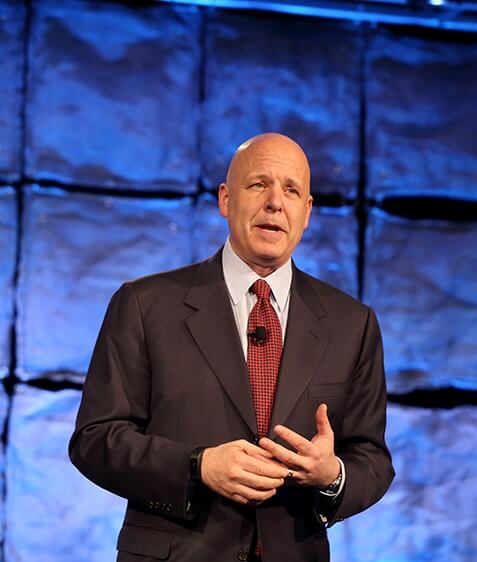
It's all about Shep Hyken’s work
Memorable cases
Q: You’ve worked with numerous companies, like American Airlines, AT&T, American Express, and many others, so I’m sure you’ve had many exciting projects. What was the most memorable case you have ever dealt with?
If we are talking about memorable cases in terms of how we changed results, there are a number of clients that we chat with because they need support and help, and we love seeing these companies see their numbers go up.
But what makes a case really memorable for me is when we build relationships with our clients where I’m not viewed as a vendor but as a partner. We have clients saying: “You know, you’ve been great” while working with us in the last year. And maybe they’ll continue to use our training services, but they just also hired me to be a keynote speaker. And I love when these clients say to me: “Can you recommend someone else that would help continue this journey for us?” Or when they say: “You know so much about conferences, where should we have our next meeting?” When clients start asking me questions about things that I don’t really do in the process of my day-to-day business, I feel like I’ve made connections and have built trust and confidence.
Partnership level with customers
Q: Wow. So being on a level of partnership rather than on a level of vendor vs. client in your business relationships means a lot for you, right?
Yeah. That means a lot for me when I can call the CEO or whoever the example dealt with, and they can call me so that we stay connected.
On the contrary, there are some clients that will spend a lot of money with us. And then when I call them concerning something really important, they don’t call back. Imagine that! And it’s not that I’m trying to sell them. I’m trying to support them: “Hey, our event is coming up in 2 weeks. And you used to have had this very important discussion with me about who the audience is.” And so, it’s very frustrating sometimes. This doesn’t happen often, but when it does, I realize that these are the kinds of clients that I worry it’s gonna be one and done. They’re gonna hire me, they’re gonna use me, and then they’re moving on. I personally become very unfulfilled with that type of experience.
Therefore, I want an experience when I feel like clients appreciate the hard work that I’m going to do for them, and I appreciate what they are going to do with the result of our time together. You know, it’s very fulfilling when you see forward progress being made.
I want an experience when I feel like clients appreciate the hard work that I’m going to do for them, and I appreciate what they are going to do with the result of our time together.
Shep Hyken’s experience as an author
Q: You wrote several books. Which one would you recommend reading in the first place to learn about the best customer support practices and tips?
The Cult of the Customer
Wow. Gosh, they are all great (laughing). It’s like you’re asking me which child is my favorite. So you know, which child gets the most attention is probably the youngest one because once that child is born, you have to spend a little bit more time while the other kids become more independent, right? So, I have recently re-released my book, The Cult of the Customer. It came out in March of this year. What’s great about that book is that it teaches you the way customers think. Also, it informs you why you might think a lot about the company and the experiences you create. And there are a lot of worksheets in that book. So The Cult of the Customer is a great book.
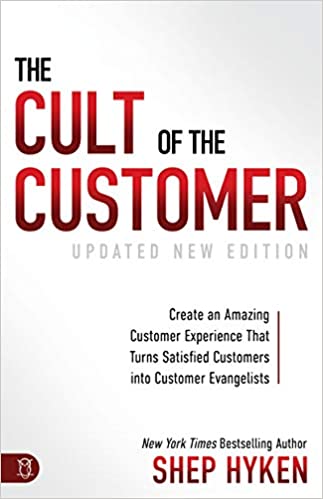
Moments of Magic
By the way, my first book is Moments of Magic. And there is a piece of that book in every book that I write. So Moments of Magic is the foundational one.
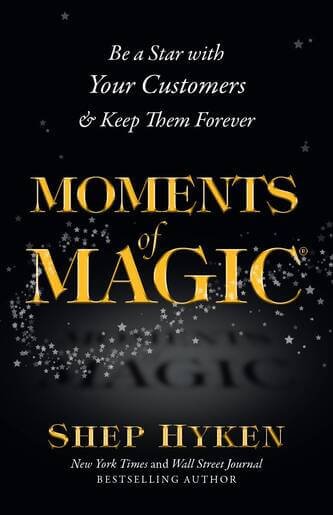
Amaze Every Customer Every Time
There is another book that I wrote called Amaze Every Customer Every Time. There are 52 very frontline focused tools for delivering amazing customer service in that book. Even though many of them can be used for an internal colleague who depends on you, many of those are very customer-focused.
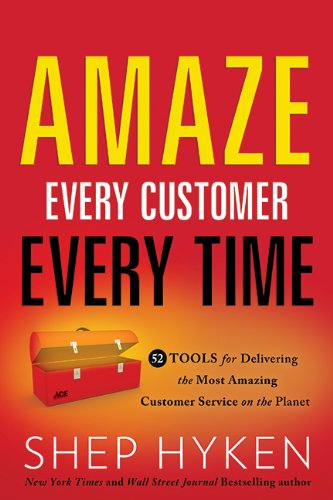
The Convenience Revolution
One more book that I just really am excited about is The Convenience Revolution that came out 2 years ago. When I started talking about convenience, it was a break-through. The only book that had been written on it at that time was The Effortless Experience by Matt Dixon, Nick Toman, and Rick DeLisi. That was really just about the customer support experience. And I thought the convenience would be way beyond that.
And, guess what happened: the pandemic hit. Here is the best way to describe it: you know, it was a luxury to have food delivered to me. But that’s no longer so. It’s not a luxury, but a kind of expectation, isn’t it? So I went from breakthrough to expectation. You know, if you are a grocery store that doesn’t have a way to deliver to customers their groceries, they’re going to go buy from someone else during this time. What’s really interesting is that people have said that once this pandemic is over, they're still gonna visit the grocery store on a regular basis, but they’re gonna start using delivery more and more often.
And guess what else: delivery from restaurants used to be free. Now, they can charge for it and customers are happy to do this because they appreciate the convenience. So there is a lot that goes into this convenience concept. I really think that all companies, regardless of the type of business they run, need to be thinking about it.
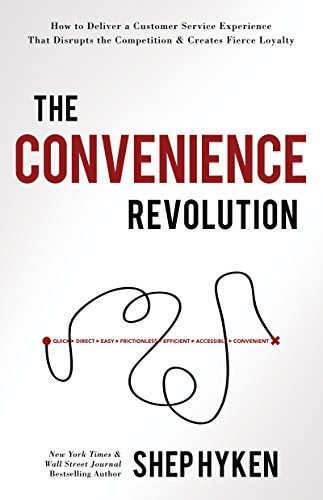
COVID-19 pandemic vs. Shep Hyken
Q: Oh, yes. And following the topic of the pandemic, is it more a threat or an opportunity for your work?
Pandemic as an accelerator for business
No doubt that everybody hit this brick wall on March 13 here in the US. At that point, people had an opportunity. Do they let things happen to them that are negatively going to impact them? Or do they say: “Ok, what can I do? Where can I be flexible? What can I adapt?” So for many, it was a disruptor. But for some, it was an accelerator.
I choose to think of myself being in the acceleration class. And here is why: a big part of my income was going out to a conference, going in front of a thousand people, and doing my speech. And that came to a complete stop during this pandemic. I do not anticipate, maybe in a year or so, it starts to come back and be normal. So what do I do in the meantime? Do I just stop making money on the biggest money-maker of my business? No, I figure out how to do it virtually through Zoom type of calls.
Shep Hyken’s own studio for presentations
So I went on to build my own studio at home. Now we have a full studio with multiple cameras and lightning. And when you want me to do a speech for your Zoom audience, you’re not going to get this talking head with: “Wait, let me share my screen. Can you see this now?” It could be a good presentation, but what the audience wants is not just great information. If all they wanted was great information, they could buy a book.
However, we want to give them experience. Like movie producers, such as Steven Spielberg, who would spend millions and millions of dollars on special effects for a one minute scene. I need to do something for a 30 or 40-minute presentation. I love when people ask: “How do you get those slides popping up over your head?” That’s because I have invested in my experience with you better.
So I believe when this is all over, I’m still gonna be doing virtual presentations. I always did maybe twelve to fifteen a year. And now I’m doing twelve to fifteen a month. And when I go back to doing this on a stage, I feel that I will do many more of these virtual presentations that I did in the past, before the pandemic. So I think that in my business, it’s the accelerator. By the way, there are people in my business that just haven’t figured it out yet, and it’s a shame. They’re struggling.
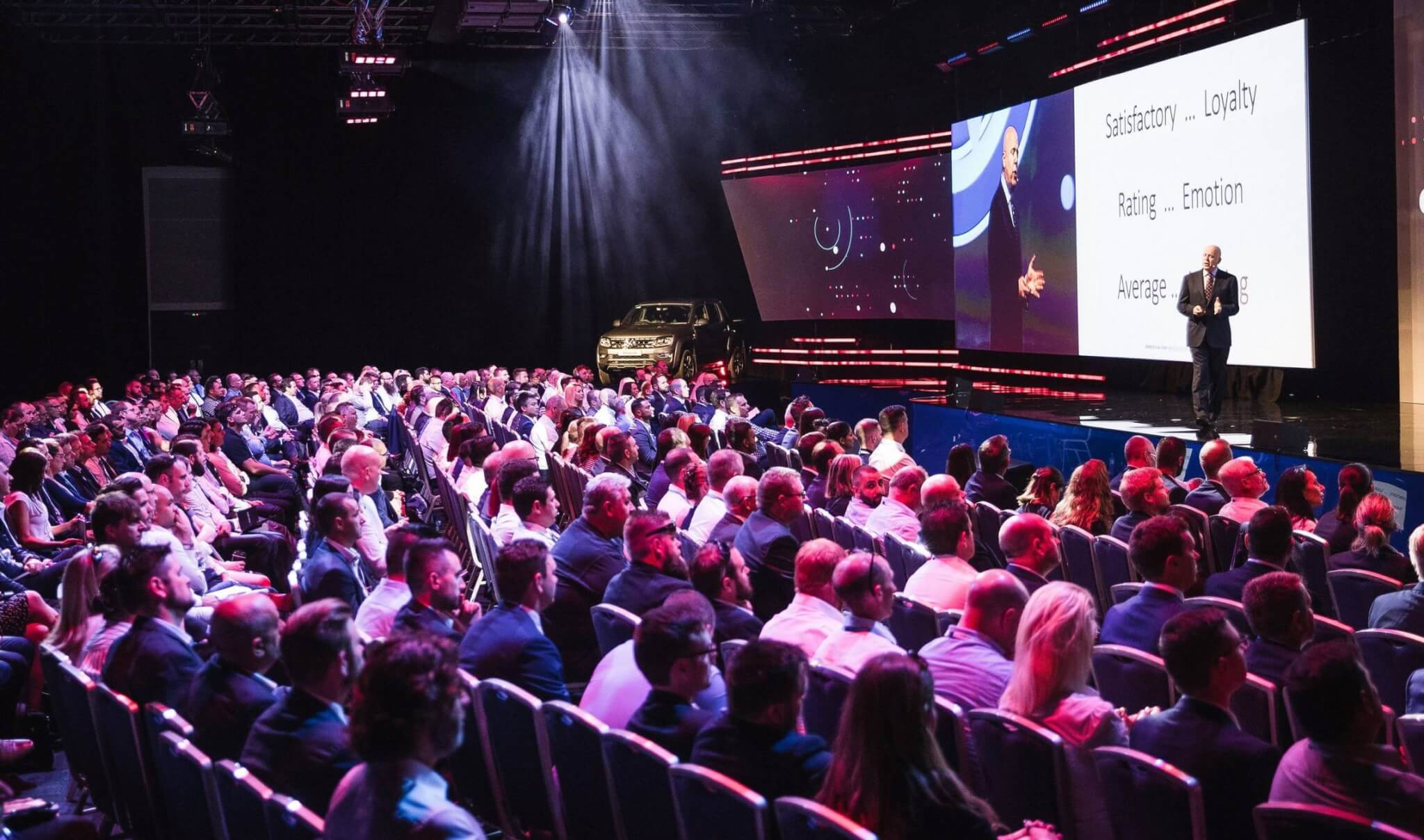
Adjustment and flexibility as keys to success
Look at restaurants. Let’s use that as an example. On the one hand, some restaurants are going to go out of business. On the other hand, some restaurants that do the exact type of food, service, experience, are succeeding right now. The reason for that is that they are setting themselves up for staying in that business.
I wrote an article about a famous chef Daniel Boulud and his very famous restaurant in New York. He has actually got restaurants all over the world. Now, he is extreme. I get it. Very high-end. But how do you take that super high-level experience to the streets? How do they deliver it? Mail Order? You know, which is what they’re doing. You can buy shark ribs and have them delivered to you. And it’s expensive, okay? They are delivering meals that they are charging thousands of dollars for! Of course, that’s high-end.
But there is also a restaurant right down the corner from me, where their average dish of pasta is about 15 dollars. And you know what: they are staying in business, they kept the things going. And there is another place right down the street that shut down and may not open back up again. So I think that you just have to be able to adjust, be flexible, look for opportunity, and seize it.
Companies need to be able to adjust, be flexible, look for opportunity, and seize it.
Pieces of advice for customer support representatives
What to do when not knowing how to help a customer
Q: You are the creator of a training program, The Customer Focus. So I would be happy to ask you what customer support representatives should do when they don’t know how to help a customer?
When a customer support representative doesn’t have a knowledge
Help, help (laughing). So there are a number of reasons why that might happen. Customer support representatives might not have the knowledge. So they should be able to go and seek that knowledge out.
By the way, one of the greatest uses for chatbots and artificial intelligence isn’t to support the customer. It’s to support the agent. When agents need to have knowledge of something, they can go to a colleague or manager.
There is the concept that I’ve written about called “One to say yes and two to say no.” And here it is: I should understand what I am allowed to do for my customer so that I don’t need to keep back to my manager asking permission to do it. By the way, once the manager says that it’s okay for me to do it, I should be able to do it for all the customers, without having to go back. If I feel like I have to say no, and I don’t have the answer, then I should seek out help.
So I’m empowered. By the way, if I feel empowered, and I think that I’m doing the right thing, then I can do it without talking to the manager. I should still go to my manager and say: “Hey, I did this today! What do you think about it?” And the manager is going to say: “That’s fantastic! Let’s share this with the team so that they will know how to do it as well.” Or the manager might say: “You know, that was a really good initiative! Let me tell you how I might have approached it. Now I’m teaching. And I’m still going to go out and train everybody.”
When a customer support representative is in a conflict with a customer
But there are times when you are in a conflict with a customer. And here is another version of the question you’re asking, where you’re just not sure what you can do to help this customer out. Nothing you are doing is getting them what they want. There is a tricky technique to use in this situation. When you find you are not getting anywhere with the problem a customer has, you can simply say: “You know, let’s reverse roles. Let’s say that I am a customer, and I came to you with this problem. How would you try to make me happy?”
And what’s really interesting is that sometimes you’re going to get somebody that is just going to give you an unreasonable request or explanation that they are trying to get from you. But other times, they’re gonna say “Hm… You know, that’s a really good question.” And then I give you the answer, and you go on: “Well, let’s see if we could make that happen.”
When you find you are not getting anywhere with the problem a customer has, you can simply say: "You know, let’s reverse roles. Let’s say that I am a customer, and I came to you with this problem. How would you try to make me happy?"
Best practices to deal with angry or unhappy customers
Q: Wow, thank you for sharing this with me. One more question related to customer service delivery. What is the best practice to deal with angry or unhappy customers?
Keep in mind this overarching principle: we’re not just trying to fix a problem when dealing with the complaint; we are actually trying to restore the confidence of a customer who wants to do business with us. Anybody can fix something. It’s how you fix it that makes somebody wants to come back and do business with you.
We’re not just trying to fix a problem when dealing with the complaint; we are actually trying to restore the confidence of a customer who wants to do business with us.
A 5-step technique
So I have this 5-step process that is very simple.
1. Acknowledgment. I want you to acknowledge that there is a problem. And that might be something like, “Wow, this would upset me, too if that had happened to me.”
2. Apology. You can apologize before you acknowledge. One or two can be reversed. An apology-like: “And I’m sorry this has happened to you.” Realize that oftentimes you’re apologizing for something you have no control over, but it’s important for customers to feel that you empathize with them.
3. Resolution. So let’s discuss what the resolution is going to be: “Can I fix this right away? Is it going to take time? Is it a process? Let me tell you what my next step is going to be.”
4. Ownership. You do this with ownership. You don’t blame others. “Do you know what happened last week? I was on vacation last week, so I have nothing to do with this. But let me see what I can do.” No, that’s not the way to approach it. But you say something like: “Wow, I am here to help you. I am your point person. And even if I have to find someone else to help me out, you and I are gonna be connected on this issue forever.” I mean that that’s an exaggeration, but you have to take ownership.
5. Urgency. Act with urgency. Speed counts when it comes to how quickly you get information back to the customer. Do you meet, or even beat, the deadlines. The whole idea is that you work quickly.
So, here we go: acknowledgment, apology, resolution, ownership, urgency.
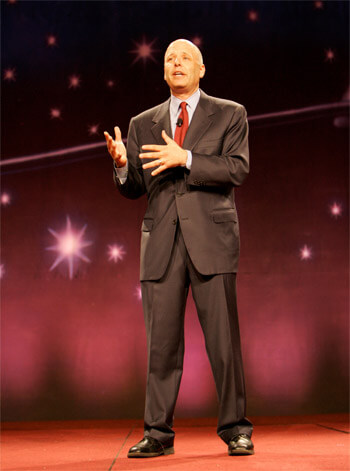
Personality matters: Shep Hyken’s success rituals, ideas, and vision
Success habits and rituals
Q: Do you have any success habits or rituals?
Yes, I get up in the morning (laughing).
Plan
Every year, I write up my plan. And every quarter, I write down my quarterly results of the plan, as well as the things I absolutely must get done.
Monitor
Moreover, I’m constantly monitoring what I consider to be 10 of the most important things that are going on in my life. The first three are personal. They have to do with my family, my personal health, and the balance between life, business, and work. I am whacked out of this balance because I love my job and my career. And oftentimes, if you let me, I’ll work late until midnight, sleep, and then wake up and start all over again. And I have revenue goals and specific project goals. Those change year-to-year, based on all types of things that I’m working on.
Workout
I do try to work out several times a week. I feel my workouts need to be fun, so I play ice-hockey 3 to 4 times a week, which is a half and puff league for an old guy. Also, I have a group that I go on bike rides with on Sunday mornings, and that’s a great workout. And, of course, I try to play golf once a week. And I try to walk 18 holes and not ride in a cart.
By the way, when I work out, it clears my head oftentimes. When I’m riding the bike, we’re going to go on a 40 or 50-mile ride. So I have 2 to 3 hours of enjoying life and looking out. And then my mind starts to really think creatively! And oftentimes, I find myself hitting my phone and recording: “Hey, remember to do this idea.” It’s just my ideas coming to me.
Ideas
Q: So I have one following question in such a case. You’ve told me that you get really creative ideas while biking. So, on a scale from 1 to 10, how weird are the ideas that come to your head sometimes?
Weird is an interesting word to describe the ideas. Outrageous might be a better word. Sometimes I get these ideas, and I start looking at them. I put them on my board, and I think about them. They are big ideas. You know, the big goal kind of thing. And I realize that it’s probably not going to work, but I’ve got to put it out there, and I’ve got to flash it out. I’ve got to think about it.
Strategic by-products
And then what’s interesting: whenever you get creative, and you start heading down a path, there is something called strategic by-product. Strategic by-products are what happens along the journey. And you have to be aware and open-minded enough to accept things that happen.
Here is a good example of one. As a speaker, I got into a business, and I thought to myself: “I’m going to get on stage and speak about what I do.” And then somebody said: “You ought to write a book.” And I could have said: “I’m not an author, I’m a speaker.” But no, instead I’ve said: “What would a book do for my career? Oh man, this would be a high degree of credibility. This would explain more about what I do.” So I wrote a book. Along the path of writing a book, I realized: “As I am writing this book, it’s got 15 chapters. Do you know what that is? That’s 15 articles.” So I can now expand, and these by-products come as results of one idea. Therefore, I think that successful people and successful companies keep their eyes and ears open all the time.
Successful people and companies keep their eyes and ears open all the time.
I used the word strategic for a very important reason: the by-product must align with what you do. I come up with ideas that have nothing to do with my business. I probably should stay away from those ideas because they would be sucking time and energy out of me, and that’s not what I would be doing. That’s why I use the word strategic in front of the word by-product.

Self-descriptive adjectives, vision, and desired skills
Q: If you had to describe yourself in 3 adjectives, what would they be?
Compassionate. Energetic. And amazing. I want to be amazing.
Q: And which one word would best sum up your vision?
Well, I think that it is the word amazing, as our motto is “always being amazing.” We want to always be amazing for our clients. We want to teach our clients to be amazing for their customers, members, whatever. Therefore, that word amazing has been a part of my life for many, many years, which is why I am the Chief Amazement Officer of Shepard Presentations.
Our motto is "always being amazing."
Q: If you could immediately acquire one new skill, for example, the ability to swim, learn a new language, etc. What skill would you like to acquire?
Flying? Can I fly (laughing)? No, I think the language would be great. I would love to be able to go into countries and speak their language. I think that I could connect much better with them if I could do that.
Q: And do you have any preferences? Should it be Chinese, or Italian, or any other language?
Italian would be better food (laughing). I love Italian food. From the point of where I live right now, Spanish is very important. But when I look out at the rest of the world, Chinese could be very important as well. And the Arabic language. I mean, I traveled to all these wonderful places, and I sometimes start to pick up words here and there when I hear them. But I just feel if I could learn some of these languages, that would be the superpower, if you will.
